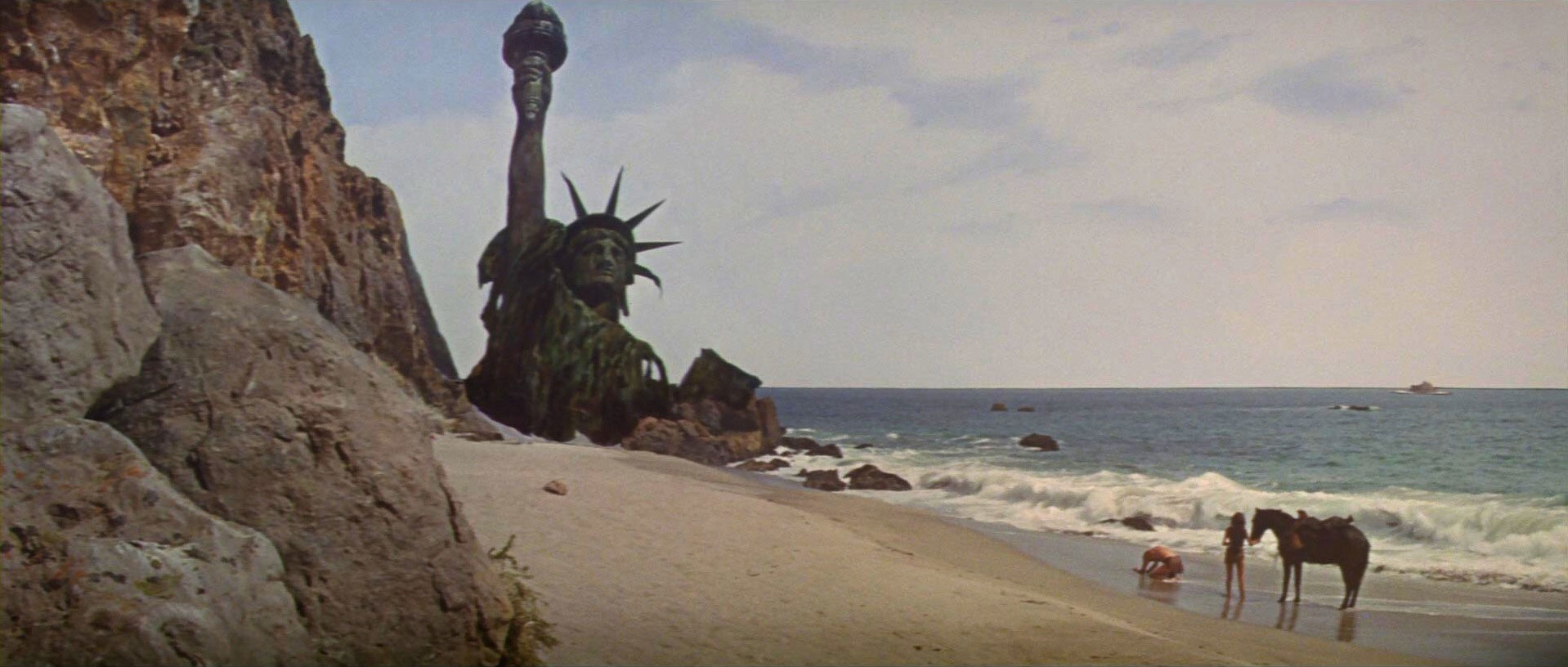Do you remember that famous scene at the end of "Planet of the Apes" when the Charlton Heston character finally realises that he is not in some far, alien planet but (gasp!) really on Earth when he sees a large chunk of pretty-well intact Statue of Liberty thrusting out of the sand?

(And as an aside, do you know that I cannot for the life of me remember if the recent remake of the movie had that same denouement because that version left absolutely no impression on me whatsoever---well that's not completely true, it did leave me with the decided impression that the technology of monkey-mask making had not progressed as far in the intervening 30-odd years as one might have hoped, but what can you do).
Anyway that was a really effective image---the unmistakeable icon of New York in the wilderness. But of course, as with most really effective images it was completely wrong. What it showed us was just about impossible. I don't know how much you know about the structure of the Statue of Liberty or, for that matter, about the chronology of the Planet of the Apes but let me assure you that the one is a flimsy shell over a hollow framework and the other is about two thousand years and I'll leave you to guess which one is which. The upshot of this is that the chances of Charlton Heston seeing Lady Liberty after all that time are probably even less than the chances of him noticing that whatever the NRA says it is a hell of a sight easier to kill someone with a gun than without!
The sad fact is that nothing lasts: entropy is king.
Something like Liberty takes a lot of care to survive even a few hundred years (think of the repairs it's needed already), but again think how even substantial buildings of stone only manage another order of magnitude---say a few thousands of years, and then, then, as time goes by, and as we get well up into the tens or eventually hundreds of thousands of years could you imagine that any buildings, even pyramids, would survive?
And when you get up into the millions of years---well you've only got to look at how sparse the fossil record is to see how little survives. Yes entropy is very, very jugger-naughty and eventually flattens everything.
Now, as you may well have noticed, I'm not a member of the current administration, and therefore I am fully aware that you can't prove a negative, so I feel perfectly justified in presenting you with this probably undisprovable little hypothesis: but but before we get to that let's start with a question. How much do you think is likely to be left to be a witness to our civilisation and our great intelligence and all our whatever it is after a really long time, say, oh, more than fifty million years?---Uh! Don't wait for an answer that was rhetorical. Now from my observations of us here and now it seems clear that one obvious sign of civilization is mass extinction.
Perhaps all that would be left of intelligence after 50, 60, 70 million years would be some soot and maybe odd distributions of rare metals platinum or, say, iridium and a lot of extinct species (though that last is no doubt a negative we can't prove). And now we come to it, do you think that there is any way that you can prove that the dinosaurs didn't develop intelligence and civilization (it has only taken us a few tens of thousands of years; tops: and they potentially had millions) and then (again to judge by ourselves) immediately develop weapons of mass destruction and then didn't almost as immediately destroy themselves in pointless wars?
That asteroid thingy was (if, that is, it actually were) probably just the gilt on the gingerbread.
Cheerio for now
from Richard Howland-Bolton
|

